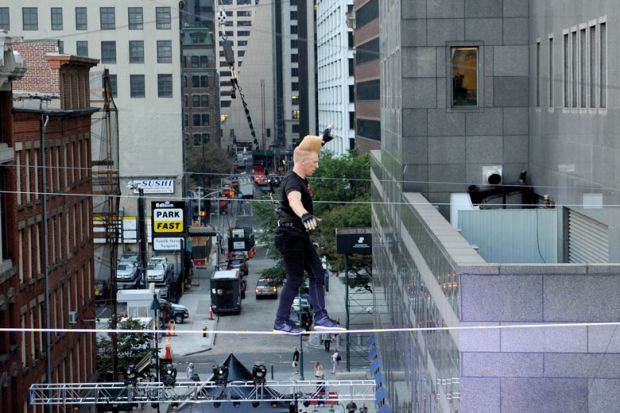In their first admissions cycle without affirmative action, US universities have been reworking essay questions to emphasise personal qualities – and then trying hard to convince wary students that such intimate answers won’t harm them.
The changes follow the US Supreme Court ruling in June, when the panel’s conservative majority overturned decades of precedent to declare in two lawsuits that universities could no longer make race a quantifiable factor in choosing whom they admit.
Yet the court explicitly authorised students to discuss in their college applications how race might have affected their lives. That invitation led diversity advocates – including top Biden administration officials – to list application essays among the options left available by the court to improve the racial mix of student bodies.
That strategy – pushed repeatedly by the US education secretary, Miguel Cardona – appears to have been heard across academia and implemented on some level by many institutions, said several experts in college admissions.
A key emerging challenge for institutions, said Ishan Bhabha, a lawyer who advises US colleges and universities on diversity and other concerns, was to suggest application essay topics that led applicants to describe their personal backgrounds, without going so far as to potentially encourage legal action.
“I’ve had an incredibly busy period over the last year,” Mr Bhabha said, “because schools are undertaking substantial steps to try and ensure that their policies and procedures are compliant” with the court rulings.
Yet in a less publicised repercussion of the Supreme Court ruling, Mr Bhabha said, many institutions had also been struggling to assure their applicants that the court ruling did not forbid them from saying whatever they wanted about themselves in their essays.
“There was a fear – an inaccurate fear – among some students in high schools, when applying to institutions, that any mention of race, or any mention of their ethnicity, could be detrimental to them,” he said.
While most institutions have tried to steer clear of inviting legal scrutiny of their essay practices, a few have taken a bit more risk. One attracting particular attention is Sarah Lawrence College, an idiosyncratic liberal arts institution near New York that included an essay prompt in its application, directly asking students to describe how the Supreme Court’s decision would affect their college goals.
Sarah Lawrence might have been especially blunt, said Maryland-based admissions adviser Shereem Herndon-Brown. But overall, Mr Herndon-Brown agreed with Mr Bhabha that selective institutions had been trying especially hard this admissions cycle to get students to discuss personal experiences, beyond just reciting their academic records.
“There’s a little bit more emphasis on it,” said Mr Herndon-Brown, the founder and president of Strategic Admissions Advice, “because they don’t want to cheat students out of an opportunity to share with them what’s going on in their lives.”
Still, the forces aligned on both sides of the equity debate recognise that there’s much to be resolved after the Supreme Court ruling, beyond the limited question of application essays. Diversity advocates including Dr Cardona have also prodded universities – with limited success – to embrace more obvious ways of promoting equity in admissions, such as ending the widespread advantages offered directly or indirectly to children of alumni and donors.
Diversity advocates have also urged colleges to encourage minority enrolment through the targeted use of marketing, financial aid and encouragements to accept admissions offers. Those kinds of tool, Mr Bhabha said, were among the leading areas of likely future lawsuits over the extent of diversity efforts.




